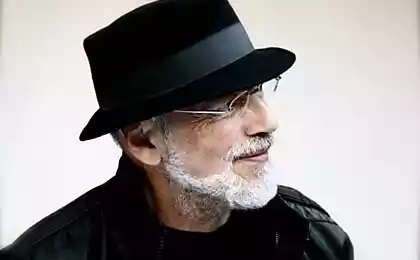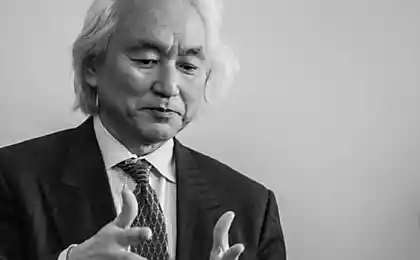528
3 ways at all times: How to make difficult decisions
To make decisions is always difficult, regardless of whether they relate to meals in the restaurant or direction of the company. Here are three methods that will help you quickly and easily to make any decisions in the household, personal and business matters.
You sit in the restaurant and leaf through the menu. All the dishes look so delicious that you don't know what to choose. Maybe I should order them all? Surely you've encountered such problems. If not food, then something else. We spend a huge amount of time and energy to make a choice between equally attractive options. But, on the other hand, options may not be the same, because each of them attractive in their own way. For example, when you decide what salad to choose, one of them looks nice, the second was light and tasty, and the third rich in protein.

If even such simple and minor things, like choosing the salad at the restaurant, take our time and energy, to say nothing of serious and important decisions that we face at work and in personal life.
What products to promote and which to refuse? Whom to promote and whom to dismiss? Should I start this difficult conversation?Making a choice, you face a new choice. If you decide to start a difficult conversation, you choose when to do it, like summon companion (in person, by phone or by email), to talk in person or at all.
It is an endless series of important decisions that cause fatigue and fear of a wrong choice. How to stop it?
Here are three methods that will help you to make decisions at all levels of life.
Make habits to avoid household solutions
The point is that if you get in the habit of eating a lunch salad, you don't have to decide what to order in a cafe.
Developing habits that involve such simple everyday Affairs, you save energy for making more complex and important decisions. In addition, if you are used to Breakfast with salad, you don't have to spend willpower for that, instead of salad not to eat something fatty and fried.
But this is predictable Affairs. What about unexpected solutions?
"If — then": a method for unpredictable decisions
For example, someone constantly interrupts your speech and you are not sure how to respond and whether to respond. According to the method of "if — then", you say, if it stops you two more times, you will make him a polite note, and if that doesn't work, then a rough form.
These two methods help to make most of the decisions that confront us every day. But when it comes to strategic planning, such as how to respond to the threat of competitors, which products to invest more, where to cut the budget, they are powerless. These decisions can be delayed for a week, a month or even a year, hindering the development of the company. Can not cope with them through habit, and the method of "if — then" is also not suitable. As a rule, on such issues there is no clear and right answer.
Often the management team is delaying the adoption of such decisions. He gathers information, weighs the pros and cons, continues to wait and monitor the situation, hoping that will be something that will point you to the right decision.
And assuming that there's no right answer, if it helps to make a decision quickly?
Imagine that you need to make a decision in the next 15 minutes. Not tomorrow, not next week when you collect enough information, and not in a month when talk with everyone who is related to the problem.
You have a quarter of an hour to make a decision. Act.
This is the third way, which helps to make difficult decisions concerning long-term planning.
Use the time
If you have researched the issue and realized that a solution equally attractive, assume that the correct answer does not exist, set yourself a time limit and just choose any option. If the test is one of the solutions requires a minimum investment, choose it and check. But if this is not possible, choose any and as soon as possible: the time you spend on useless thoughts, you can use the best way.
Of course, you can disagree: "If I wait, you may receive the correct answer". Maybe, but, first, you are wasting precious time, waiting for clarification. Second, the waiting makes you procrastinate and postpone other decisions related to it reduces productivity and slows down the development of the company.
Just accept the decision and move on.
Try it now. If you have an issue that you have been putting off, give yourself three minutes and do it. Like if you have too much, write a list and set the time for every decision.
You will see that every decision you will feel a little better, decrease anxiety, you will feel that moving forward.
So you choose a light salad. It was the right choice? Who knows... At least you ate, not sit hungry over the menu.published
P. S. And remember, just changing your mind — together we change the world! ©
Join us in Facebook , Vkontakte, Odnoklassniki
Source: lifehacker.ru/2015/12/21/kak-prinjat-reshenie/?rlp
You sit in the restaurant and leaf through the menu. All the dishes look so delicious that you don't know what to choose. Maybe I should order them all? Surely you've encountered such problems. If not food, then something else. We spend a huge amount of time and energy to make a choice between equally attractive options. But, on the other hand, options may not be the same, because each of them attractive in their own way. For example, when you decide what salad to choose, one of them looks nice, the second was light and tasty, and the third rich in protein.

If even such simple and minor things, like choosing the salad at the restaurant, take our time and energy, to say nothing of serious and important decisions that we face at work and in personal life.
What products to promote and which to refuse? Whom to promote and whom to dismiss? Should I start this difficult conversation?Making a choice, you face a new choice. If you decide to start a difficult conversation, you choose when to do it, like summon companion (in person, by phone or by email), to talk in person or at all.
It is an endless series of important decisions that cause fatigue and fear of a wrong choice. How to stop it?
Here are three methods that will help you to make decisions at all levels of life.
Make habits to avoid household solutions
The point is that if you get in the habit of eating a lunch salad, you don't have to decide what to order in a cafe.
Developing habits that involve such simple everyday Affairs, you save energy for making more complex and important decisions. In addition, if you are used to Breakfast with salad, you don't have to spend willpower for that, instead of salad not to eat something fatty and fried.
But this is predictable Affairs. What about unexpected solutions?
"If — then": a method for unpredictable decisions
For example, someone constantly interrupts your speech and you are not sure how to respond and whether to respond. According to the method of "if — then", you say, if it stops you two more times, you will make him a polite note, and if that doesn't work, then a rough form.
These two methods help to make most of the decisions that confront us every day. But when it comes to strategic planning, such as how to respond to the threat of competitors, which products to invest more, where to cut the budget, they are powerless. These decisions can be delayed for a week, a month or even a year, hindering the development of the company. Can not cope with them through habit, and the method of "if — then" is also not suitable. As a rule, on such issues there is no clear and right answer.
Often the management team is delaying the adoption of such decisions. He gathers information, weighs the pros and cons, continues to wait and monitor the situation, hoping that will be something that will point you to the right decision.
And assuming that there's no right answer, if it helps to make a decision quickly?
Imagine that you need to make a decision in the next 15 minutes. Not tomorrow, not next week when you collect enough information, and not in a month when talk with everyone who is related to the problem.
You have a quarter of an hour to make a decision. Act.
This is the third way, which helps to make difficult decisions concerning long-term planning.
Use the time
If you have researched the issue and realized that a solution equally attractive, assume that the correct answer does not exist, set yourself a time limit and just choose any option. If the test is one of the solutions requires a minimum investment, choose it and check. But if this is not possible, choose any and as soon as possible: the time you spend on useless thoughts, you can use the best way.
Of course, you can disagree: "If I wait, you may receive the correct answer". Maybe, but, first, you are wasting precious time, waiting for clarification. Second, the waiting makes you procrastinate and postpone other decisions related to it reduces productivity and slows down the development of the company.
Just accept the decision and move on.
Try it now. If you have an issue that you have been putting off, give yourself three minutes and do it. Like if you have too much, write a list and set the time for every decision.
You will see that every decision you will feel a little better, decrease anxiety, you will feel that moving forward.
So you choose a light salad. It was the right choice? Who knows... At least you ate, not sit hungry over the menu.published
P. S. And remember, just changing your mind — together we change the world! ©
Join us in Facebook , Vkontakte, Odnoklassniki
Source: lifehacker.ru/2015/12/21/kak-prinjat-reshenie/?rlp























